Supreme Court Backs Student In Textbook Copyright Case
WASHINGTON -- The Supreme Court ruled Tuesday that textbooks and other goods made and sold abroad can be re-sold online and in discount stores without violating U.S. copyright law. The outcome was a huge relief to eBay, Costco and other businesses that trade in products made outside the U.S.
In a 6-3 opinion, the court threw out a copyright infringement award to publisher John Wiley & Sons against Thai graduate student Supap Kirtsaeng, who used eBay to resell copies of the publisher's copyrighted books that his relatives first bought abroad at cut-rate prices.
Justice Stephen Breyer said in his opinion for the court that once goods are sold lawfully, whether in the U.S. or elsewhere, publishers and manufacturers lose the protection of U.S. copyright law.
"We hold that the `first sale' doctrine applies to copies of a copyrighted work lawfully made abroad," Breyer said.
Had the court come out the other way, it would have crimped the sale of many goods sold online and in discount stores, and it would have complicated the tasks of museums and libraries that contain works produced outside the United States, Breyer said. Retailers told the court that more than $2.3 trillion worth of foreign goods were imported in 2011, and that many of these goods were bought after they were first sold abroad, he said.
Aaron Moss, a Los Angeles-based lawyer who is representsing Costco in a related case, said the court "correctly rejected the idea that this has anything to do with geography."
In a dissent for herself and Justices Anthony Kennedy and Antonin Scalia, Justice Ruth Bader Ginsburg said the court was ignoring Congress' aim of protecting "copyright owners against the unauthorized importation of low-priced, foreign-made copies of their copyrighted works."
The movie and music businesses, software makers and other manufacturers worry that the decision allows unauthorized sales to undercut their businesses.
"The ruling for Kirtsaeng will send a tremor through the publishing industries, harming both U.S. businesses and consumers around the world. Today's decision will create a strong disincentive for publishers to market different versions and sell copies at different prices in different regions. The practical result may very well be that consumers and students abroad will see dramatic price increases or entirely lose their access to valuable U.S. resources created specifically for them," said Keith Kupferschmid, general counsel for the Software & Information Industry Association.
Justice Elena Kagan, joined by Justice Samuel Alito, said in a separate opinion that Congress is free to change the law if it thinks holders of copyrights need more protection. Chief Justice John Roberts and Justices Sonia Sotomayor and Clarence Thomas also were part of the court's majority.
Kirtsaeng sold $900,000 worth of books published abroad by Wiley and others and made about $100,000 in profit. The international editions of the textbooks were essentially the same as the more costly American editions. A jury in New York awarded Wiley $600,000 after deciding Kirtsaeng sold copies of eight Wiley textbooks without permission.
The high court wrestled with what protection the holder of a copyright has after a product made outside the United States is sold for the first time. In this case, the issue was whether U.S. copyright protection applies to items that are made abroad, purchased abroad and then resold in the U.S. without the permission of the manufacturer.
The court earlier rejected copyright claims over U.S.-made items that were sold abroad and then brought back to the United States for resale.
The justices heard a similar case in 2010, but Kagan did not take part because she worked on it while serving in the Justice Department. The court divided 4-4 in that case, involving discount seller Costco and Swiss watch maker Omega.
The case decided Tuesday is Kirtsaeng v. John Wiley & Sons, 11-697.
Wednesday, March 20, 2013
Supreme Court Backs Student In Textbook Copyright Case
Labels:
Copyright,
Intellectual Property,
Law
Subscribe to:
Post Comments (Atom)

By MARK SHERMAN 03/19/13 12:30 PM ET EDT